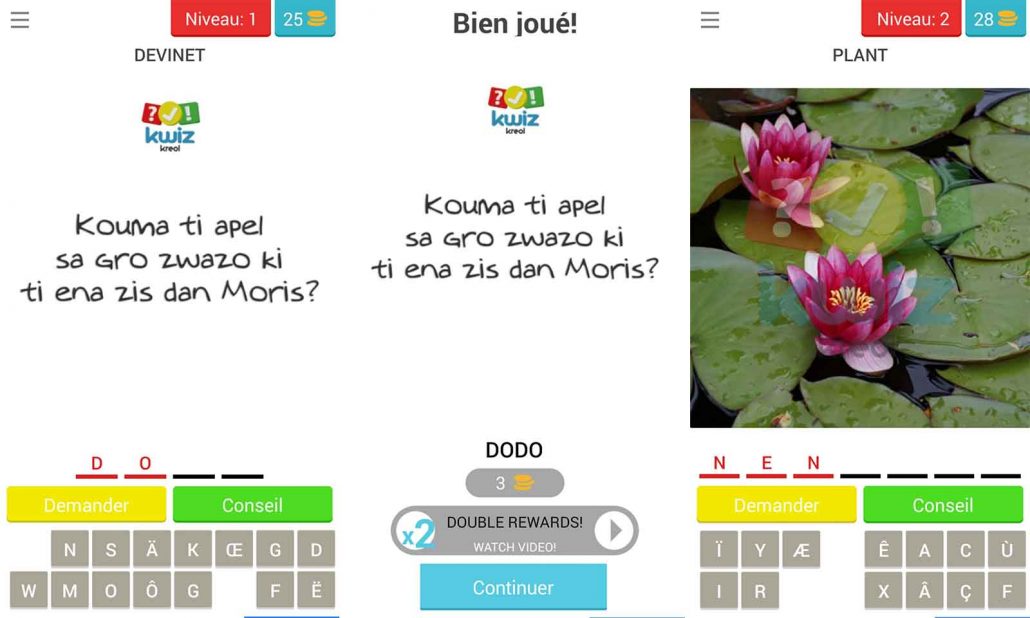Kwiz Kreol is one of the first mobile application found on Play Store only to learn to write and understand words in Creole.
This first interactive game in ‘Mauritian’ Creole using basic everyday words for Mauritians and also other people like expatriates wanting to learn Creole as soon as they arrive in Mauritius. A course that teaches you the questions in Creole, with examples such as: interrogative, asking a question to someone, and intonation, as well as a list of vocabulary to reinforce your basic grammar in Creole. This game is open to all people and is free.
Learning Creole questions is very important, because their structure is used in every day conversation. The only solution is to master the grammar and vocabulary to be able to speak the language fluently. Several categories are available such as sports, jobs, objects and even riddles. With clues, you can play alone or with others. Every day on their Facebook page https://www.facebook.com/kwizkreol, they ask you questions about the history of Mauritius and without forgetting the Mauritian expressions.

Did you know?
Did you know that when people speak in their native language, they only use a small number of words in everyday conversations. This means that you can reach a good level in a very short time. It is generally easier to understand Creole than to learn it, but that is part of integrating into a new country. The unconditional accent of expatriates often amuses Mauritians but they appreciate the effort and laugh in kindness. Mauritian Creole is also evolving and many old terms are no longer used by young people.
In Mauritius, the two official languages are French and English but in everyday life, Mauritian Creole dominates: an oral language. Because of its history, Mauritian Creole has a French lexical base, also impregnated by Malagasy and English, e.g. malang (unclean) for Malagasy and bus-stop for English. Indian languages, including Hindi and Bhojpuri, are also present in the popular Creole vocabulary of Mauritius, for example the words dyalsa (party) or madja (racket).
Some rules of pronunciation :
Consonants are pronounced as in French, except for :
- “j” and “ch” are read as “z” and “s” respectively.
- “C” is spelled “k”, except for words borrowed from English: the “c” is then retained.
- The “n” is only pronounced if the consonant is repeated after a vowel.
- The “w” is said “oi”;
- the “g” is always read “gu”, never “j”.
- The “ch” sound is pronounced like the English “ch”; similarly, “dj” is pronounced like Jack.
- The letter “x” does not exist in Mauritian Creole, which replaces it either with “s”, as in dis (ten); or with “gz”, as in legzamé (examination); or with “ks”, as in eksité (to excite)
Concerning vowels :
- The French “u” is read as “i”;
- the French “i” is pronounced “in”, as in “vin”;
- and the “en”: “ine”. “E” and “eu” are said “é”.
Last remark, in Mauritian Creole all the letters are pronounced, whatever their position in the sentence.



